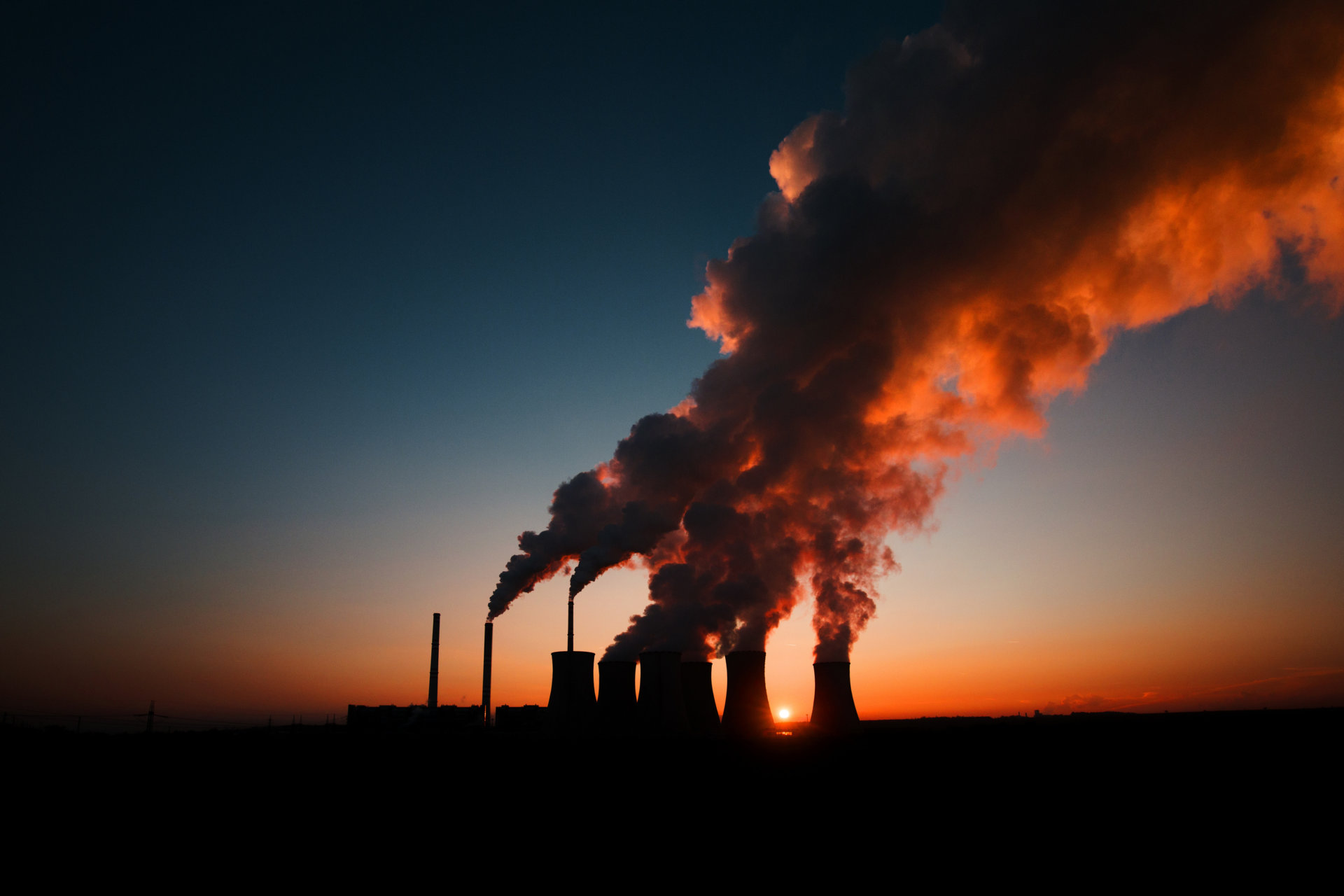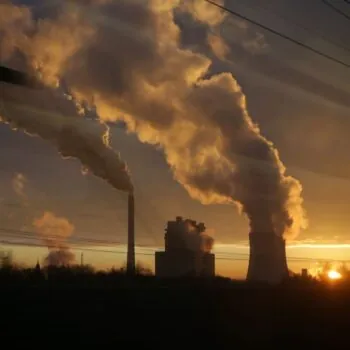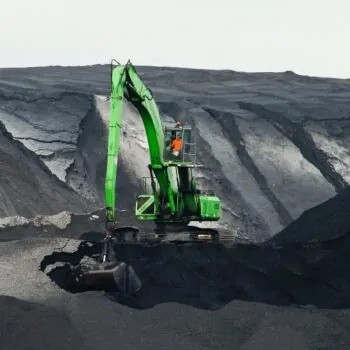On Wednesday 2 December the UN’s Environment Programme, in collaboration with leading research institutes including E3G, will launch their Production Gap Report. In anticipation, we have conducted two conversations with E3G Senior Associates Jesse Burton and Jonathan Gaventa.
In this second part, we talk to Jesse and Jonathan about what fossil fuel producing countries in the Global South can do to mitigate the negative impacts of dropping fossil fuel demand. We also discuss how the international community can support them in achieving a sustainable development pathway allowing them to leave their fossil resources in the ground. You can find the first, which covers recent trends around fossil fuel demand, the impacts of COVID19, and the effects of these on major fossil fuel producing economies here.
The Production Gap Report provides detailed analysis of the ‘gap’ between Paris Agreement goals and countries’ planned production of coal, oil, and gas. You can find out more on the Production Gap Report Website.
Jesse is based in South Africa, where she works closely with climate and energy modellers, governments, and non-governmental stakeholders to provide analysis and policy advice on coal transitions in South Africa and globally.
Jonathan is based in Mozambique and has been following the country’s quest for wealth by building up a gas export industry.
Leo Roberts / Lisa Fischer: Hi Jonathan, hi Jesse – thanks for coming back. When we last spoke you described how COVID-19 is hitting fossil fuel producing countries disproportionately hard, particularly those in the Global South.
You mentioned immediate health and economic impacts accompanied by serious consequences on fiscal headroom, and how this is exacerbating previous trends, with low chances of reversal post-pandemic.
What can governments in fossil fuel producing countries do to better manage the economic shock of drops in demand for coal, oil and gas? Can producing fossil fuels still help them to manage wider economic shocks?
Jesse Burton (JB): At the moment, in spite of the global trends, the production of fossil fuel is still often seen as a resource, a benefit and a growth sector. In many poor countries, this seems like an opportunity to be grasped with both hands, especially when the fossil fuel companies Jonathan mentioned earlier are telling political leaders that fossil fuels will bring development to places where almost entire populations live in dire poverty, without access to modern energy services, and tiny government budgets.
Jonathan Gaventa (JG): Yes, some difficult conversations are needed.
Historically, the typical strategy is to try to use fossil fuel revenues to diversify the economy. But diversification is a concept that is easier to write in a report than to achieve in the real world.
As we’ve seen from countries such as Angola and Equatorial Guinea, fossil fuel production is more often associated with crowding out other parts of the economy rather than crowding in investment. Oil and gas production has a tendency to monopolize government attention, suck up the talent pool, distort currencies and interest rates, and overshadow efforts to drive growth elsewhere in the economy
JB: Exactly. I’d challenge the word ‘still’ in the question too. There’s a huge body of evidence showing that the economic benefits of fossil fuels are frequently overblown. We can see that across Africa – where a large proportion of new discoveries have been made in recent years (see World Bank report). And we can also see that resource rents, in absence of institutions to manage them, often bring both environmental injustice and broader economic resource curse issues.
Are there any other strategies that fossil fuel producers have taken in the past which might help them in the future?
JG: One strategy that some countries use is to set up a sovereign wealth fund to help manage resources and smooth over volatility. But sovereign wealth funds are only useful for managing cyclical changes in demand. They are less useful for structural changes – for example a long-term oil and gas oversupply triggered by an accelerated global energy transition. To put it another way, sovereign wealth funds aren’t much use if the expected wealth never materialises.
So what can and should governments be doing to mitigate the impacts of reduced demand for coal, oil and gas?
JG: Ultimately, the key strategy is careful management of expectations. Oil and gas discoveries can often lead to an echo chamber of inflated hopes and wildly unrealistic projections.
Governments should sense-check new oil and gas projects against low emission pathways – including far lower demand and price projections than currently used. Projects with long lead times and high breakeven costs are particularly problematic. It’s far easier to manage upside risk – if more revenues accumulate than foreseen – than to manage if the revenues that were expected to underpin government spending never turn up.
JB: Economic diversification is a difficult task. We are in a moment where energy markets are transforming. Global value chains might be difficult to break into by developing countries and local markets are small. In each country it will be different depending on the potential competitive advantages in other sectors.
It is not sufficient for governments to just assume these benefits will flow because oil and gas companies say so.
In developing counties, the just transition starts to look a lot like socioeconomic development ‘done right’, with decent work and sustainable economic development at the heart of the transition.
What are your top recommendations for the international community to support fossil fuel producers in reducing exposure in the future?
JG: The first step has to be better clarity and transparency of fossil fuel demand from internationally recognised institutions. If Carbon Capture and Storage fails to materialise – again – then the production gap will be even wider, as fossil demand will fall even further. Reforming how International Energy Agency scenarios are modelled and communicated will be crucial. Net energy consuming countries should also be more explicit about what their transition pathways mean for oil and gas demand.
What about on the finance side? What can the international community be doing to shift finance from fossil fuels to renewable energy?
JG: The Global North have a huge responsibility to phase-out public finance for fossil fuels. I continue to be amazed at countries who have committed to stringent climate targets at home but continue to channel their taxpayers’ money into fossil fuel developments abroad. The $15 billion of financing that secured Total’s Mozambique LNG project included investments by eight Export Credit Agencies including COP26 hosts UK and Italy and the African Development Bank.
JB: The international community needs to support countries considering entering into fossil fuel production to help them leapfrog fossil fuels for their own domestic energy use. This could be through concessional finance to help avoid lock-in where economics are not yet fully tipped. For example, providing financial support to renewable energy or local resources like geothermal or hydro, supplemented by batteries instead of gas or diesel. Importantly, they need to make sure that energy actually gets to the people and companies who need it.
And aside from where they put their public investments, bilaterally and multilaterally, how can countries in the Global North be supporting fossil fuel producers?
JB: Obviously achieving robust and sustainable economic development is the holy grail in terms of justifying leaving fossil fuel resources in the ground. There is no escaping that countries will look to fossil fuel extraction if they do not have alternative development pathways clearly articulated. They also need help from institutions to guide that process and financial support to promote low carbon and climate resilient pathways.
JG: It’s not just about the scale of public finance, there is also a real need for more structured international support for an orderly and just transition for fossil fuel producers. This function is currently missing from the global economic, energy and climate governance landscape.
And what about the equity element of all this? Why should countries act, and why should the international community support them to do so?
JG: Supporting producers to reduce dependence on fossil revenues now can help avoid damaging defaults and potentially decrease the risks of state failures and political unrest in the future. It’s in the interests of the international community as a whole for this to happen.
JB: I’d flip that question on its head. The international community needs to remember the spirit of the Paris Agreement and the UNFCCC process. Countries do have sovereignty over their choices, and in some cases, fossil fuel options are still cheaper (ignoring externalities) than alternatives.
If the international community is not willing to lower the costs of alternatives through finance, grants and technical support – then berating poor and developing countries for not being “Paris compliant” is unfair. It goes without saying that developed countries must massively accelerate the phase-out of their own extraction and use. After all, they are primarily responsible for the climate change we are experiencing already.
Thank you both very much for all your insights, much appreciated, and we look forward to further conversations in the future.
Read Part I of our ‘Bridging the Production Gap’ interview here.
The Production Gap Report will be launched on Wednesday 2nd December. You can find out more here.
Please stay posted for further expert interviews on similar topics from E3G and partners.
Photo by kamilpetran on Adobe.


